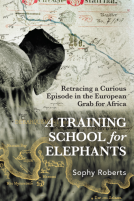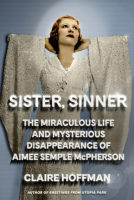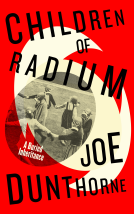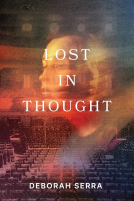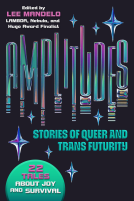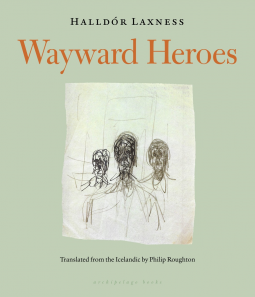
Wayward Heroes
by Halldor Laxness
This title was previously available on NetGalley and is now archived.
Buy on Amazon
Buy on BN.com
Buy on Bookshop.org
*This page contains affiliate links, so we may earn a small commission when you make a purchase through links on our site at no additional cost to you.
Send NetGalley books directly to your Kindle or Kindle app
1
To read on a Kindle or Kindle app, please add kindle@netgalley.com as an approved email address to receive files in your Amazon account. Click here for step-by-step instructions.
2
Also find your Kindle email address within your Amazon account, and enter it here.
Pub Date Nov 01 2016 | Archive Date Sep 01 2016
Archipelago Books | Archipelago
Description
“Drawing on historical events, including King Olaf’s reign in Norway and the burning of Chartres Cathedral, Laxness revises and renews the bloody sagas of Icelandic tradition, producing not just a spectacular historical novel but one of coal-dark humor and psychological depth.” – Publishers Weekly
First published in 1952, Halldór Laxness’s Wayward Heroes offers an unlikely representation of modern literature. A reworking of medieval Icelandic sagas, the novel is set against the backdrop of the medieval Norse world. Laxness satirizes the spirit of sagas, criticizing the global militarism and belligerent national posturing rampant in the postwar buildup to the Cold War.
He does that through the novel’s main characters, the sworn brothers Þormóður Bessason and Þorgeir Hávarsson, warriors who blindly pursue ideals that lead to the imposition of power through violent means. The two see the world around them only through a veil of heroic illusion: kings are fit either to be praised in poetry or toppled from their thrones, other men only to kill or be killed, women only to be mythic fantasies. Replete with irony, absurdity, and pathos, the novel more than anything takes on the character of tragedy, as the sworn brothers’ quest to live out their ideals inevitably leaves them empty-handed and ruined.
First published in 1952, Halldór Laxness’s Wayward Heroes offers an unlikely representation of modern literature. A reworking of medieval Icelandic sagas, the novel is set against the backdrop of the medieval Norse world. Laxness satirizes the spirit of sagas, criticizing the global militarism and belligerent national posturing rampant in the postwar buildup to the Cold War.
He does that through the novel’s main characters, the sworn brothers Þormóður Bessason and Þorgeir Hávarsson, warriors who blindly pursue ideals that lead to the imposition of power through violent means. The two see the world around them only through a veil of heroic illusion: kings are fit either to be praised in poetry or toppled from their thrones, other men only to kill or be killed, women only to be mythic fantasies. Replete with irony, absurdity, and pathos, the novel more than anything takes on the character of tragedy, as the sworn brothers’ quest to live out their ideals inevitably leaves them empty-handed and ruined.
Advance Praise
• "Laxness is a beacon in twentieth-century literature, a writer of splendid originality, wit, and feeling." -- Alice Munro
• "Laxness brought the Icelandic novel out from the sagas' shadow...to read Laxness is also to understand why he haunts Iceland--he writes the unearthly prose of a poet cased in the perfection of a shell of plot, wit, and clarity." -- The Guardian
• "Science fiction. Table, fable, allegory. Philosophical novel. Dream novel. Visionary novel. Literature of fantasy. Wisdom lit. Spoof. Sexual turn-on. Convention dictates that we slot many of the last centuries' perdurable literary achievements into one or another of these categories. The only novel I know that fits into all of them is Halldór Laxness's wildly original, morose, uproarious Under the Glacier." -- Susan Sontag
• "The qualities of the sagas pervade his writing, and particularly a kind of humor--oblique, stylized and childlike--that can be found in no other contemporary writer." -- The Atlantic Monthly
• "Laxness habitually combines the magical and the mundane, writing with grace and a quiet humor that takes awhile to notice but, once detected, feels ever present...All his narratives...have a strange and mesmerizing power, moving almost imperceptibly at first, then with glacial force." -- LA Times
• "One of the world's most unusual, skilled and visionary novelists." -- Jane Smiley
"Laxness is a poet who writes at the edge of the pages, a visionary who allows us a plot: He takes a Tolstoyan overview, he weaves in a Waugh-like humor: it is not possible to be unimpressed." -- Daily Telegraph
"More than any other novel I know, Iceland's Bell recreates a world Pieter Brueghel would have felt right at home, not merely in its fascination with bumblers (petty thieves, purblind watchmen) and grotesques (faceless lepers, hanging corpses), but also in its unearthly ability to find beauty in a landscape of destitution, wisdom in a congress of fools." --The New York Times Book Review
"One quality that makes Laxness's novels so morally uplifting is their air of tender but urgent gratitude. While his tone can vary widely from book to book...the reader consistently feels that the books are conceived in a spirit of homage; they are some of the world's most substantial thank-you notes." -- Brad Leithauser, The New York Review of Books
• "Laxness brought the Icelandic novel out from the sagas' shadow...to read Laxness is also to understand why he haunts Iceland--he writes the unearthly prose of a poet cased in the perfection of a shell of plot, wit, and clarity." -- The Guardian
• "Science fiction. Table, fable, allegory. Philosophical novel. Dream novel. Visionary novel. Literature of fantasy. Wisdom lit. Spoof. Sexual turn-on. Convention dictates that we slot many of the last centuries' perdurable literary achievements into one or another of these categories. The only novel I know that fits into all of them is Halldór Laxness's wildly original, morose, uproarious Under the Glacier." -- Susan Sontag
• "The qualities of the sagas pervade his writing, and particularly a kind of humor--oblique, stylized and childlike--that can be found in no other contemporary writer." -- The Atlantic Monthly
• "Laxness habitually combines the magical and the mundane, writing with grace and a quiet humor that takes awhile to notice but, once detected, feels ever present...All his narratives...have a strange and mesmerizing power, moving almost imperceptibly at first, then with glacial force." -- LA Times
• "One of the world's most unusual, skilled and visionary novelists." -- Jane Smiley
"Laxness is a poet who writes at the edge of the pages, a visionary who allows us a plot: He takes a Tolstoyan overview, he weaves in a Waugh-like humor: it is not possible to be unimpressed." -- Daily Telegraph
"More than any other novel I know, Iceland's Bell recreates a world Pieter Brueghel would have felt right at home, not merely in its fascination with bumblers (petty thieves, purblind watchmen) and grotesques (faceless lepers, hanging corpses), but also in its unearthly ability to find beauty in a landscape of destitution, wisdom in a congress of fools." --The New York Times Book Review
"One quality that makes Laxness's novels so morally uplifting is their air of tender but urgent gratitude. While his tone can vary widely from book to book...the reader consistently feels that the books are conceived in a spirit of homage; they are some of the world's most substantial thank-you notes." -- Brad Leithauser, The New York Review of Books
Available Editions
| EDITION | Other Format |
| ISBN | 9780914671091 |
| PRICE | $20.00 (USD) |

